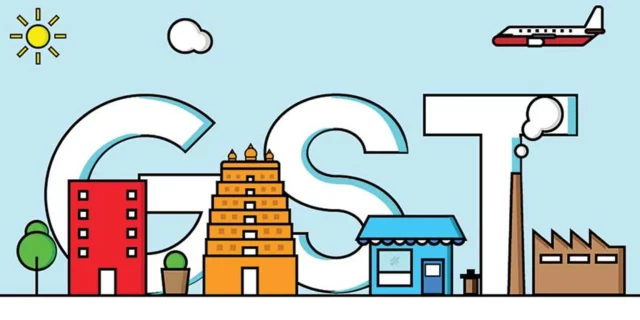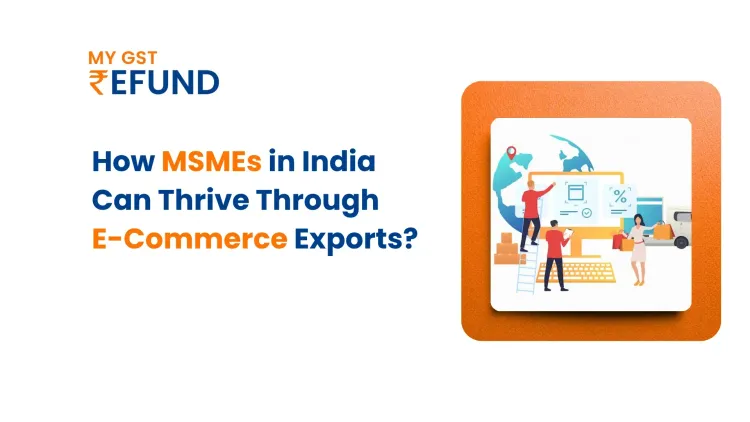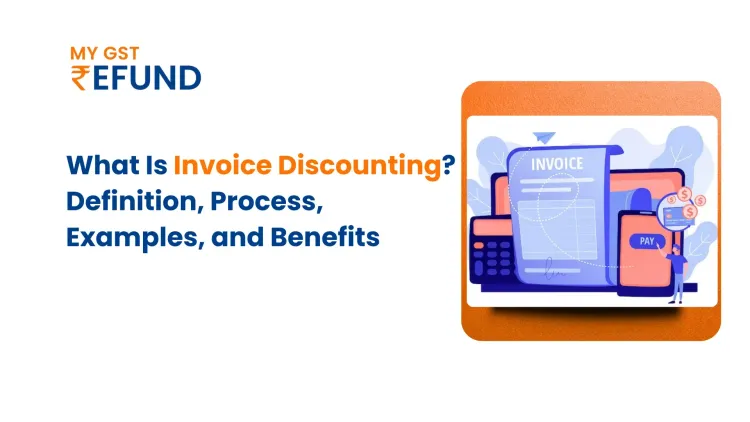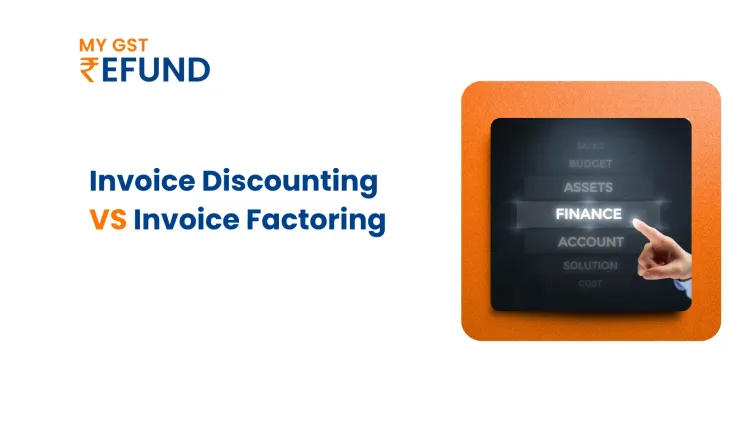Risky Exporters: Identification, Risks, and Refund Solutions
Published on: Fri Jul 21 2023
Who are Risky Exporters?

Under the Goods and Services Tax (GST) system, there is no specific category of “risky exporters.” However, there are certain exporters who may be considered at higher risk or subject to increased scrutiny due to various factors. These factors may include:
- Exporters with a history of non-compliance: Exporters who have previously violated GST regulations or have a record of non-compliance with tax authorities may be considered at higher risk.
- Exporters involved in fraudulent activities: Those engaged in fraudulent practices, such as claiming input tax credit (ITC) on non-existent or fake invoices, may be classified as risky exporters.
- Exporters with a high volume of exports: Businesses involved in large-scale exports, particularly if their export values are significantly higher than their domestic sales, may be subject to closer scrutiny to ensure the legitimacy of their transactions.
- Exporters involved in sectors prone to tax evasion: Certain sectors, such as textiles, gems and jewelry, and commodities, are considered more susceptible to tax evasion. Exporters operating in these sectors may face increased scrutiny.
- Exporters with mismatched or suspicious transactions: Exporters with transactions that have inconsistencies, discrepancies, or suspicious patterns may attract the attention of tax authorities. For example, if the value declared for exports differs significantly from the market value of the goods.
It is important to note that the classification of risky exporters can vary across jurisdictions, and tax authorities have their own methods of assessing and identifying potential risks. Additionally, the GST landscape is subject to change, and new regulations or guidelines may be implemented to address specific concerns related to exports and risk management.
Circulars issued by the Government of India with regard to the Risky Exporter:
Circular 131-1-2020 Dated the 23rd January, 2020
DGARM vide this circular provided the procedure to be followed for verification of the risky exporters and their suppliers.
Instruction no 04/2022 dated 28-11-2022
It provides the manner of processing and sanction of IGST refunds, withheld in terms of Rule 96(4)(c) of the CGST Rules, 2017 transmitted to the Jurisdictional Officer under Rule 96(5A) of the CGST Rules, 2017.
Instruction No. 03/2022-GST dated 14 June 2022
It provides the procedure relating to sanction, post-audit, and review of refund claims.
Criteria based on which the exporters can be declared as risky exporters
Based on the practical learning following can be the few criteria based on which the exporters can be declared as risky exporters, although this list is non-exhaustive, thus, there could be other reasons also to declare the exporters as risky exporters:
- Exporters have claimed tax refunds on the basis of fraudulent invoices.
- Exporters have fraudulently claimed an excess refund of ITC.
- Exporters have claimed refunds on the basis of invalid documents.
- There is a huge difference between their FOB value and the taxable value of the exports.
- The exporter has received the supplies from a risky supplier.
- If the exporter does not operate his business from the principal place of business.
- If the exporter has not received the BRCs with respect to the exports made by him and still he is claiming the refund of the unutilized ITC on the account of such exports.
What are the questions that can be asked to an exporter or a risky exporter?
Following few questions can be asked to an exporter to determine whether he is a risky one or not or to determine the reason as to why an exporter has been declared as a risky exporter:
- Are you facing issues in getting your refund from the custom or GST department?
- Are you facing issues due to the tag of risk being attached to your name?
- Have you filed for the refund, and even after submitting the supporting documents and proof of not being guilty or paying the penalty refund is not processed?
- Have you by mistake or intentionally claimed inputs wrongfully and you have been put on the list of risky exporters and now you don’t know what to do?
- Have you ever delayed or not paid the tax?
- Have you changed your core business activity and operating another business in same GST number?
- Have you ever claimed any refund wrongly?
- Have you ever defaulted in payment of your tax?
- Are you operating from the same principal place of business as you have mentioned while registering for GSTIN.
- Have you ever claimed ITC more then you were eligible to?
- Certain sectors, such as textiles, gems, and jewelry, or commodities, are considered more prone to tax evasion or non-compliance. Exporters operating in these sectors may be scrutinized due to the inherent risks associated with their industries.
What are the solutions that we can provide to the Risky exporters?
Following are the solutions that MyGST Refund can provide to the Risky Exporters:
- Due diligence to verify the genuineness of the documents.
- Check and asses the client’s returns filling history.
- Assist in future compliance works and provide legal Advisory, so issues like this don’t arise in the future.
- Provide consultancy services for exports procedure.
- Guide assist in claiming benefits of duty drawback and other relevant schemes.
- In case the registration of the company is cancelled we also do the revival.
- Safeguard the exporter by verifying the genuineness and identity of the suppliers, and that the supplier has existing GST registration.
Who determines whether an exporter is risky or not?
DGARM stands for Directorate General of Anti-Profiteering (DGARM) under the Goods and Services Tax (GST) regime in India. DGARM is a specialized agency established to investigate and take action against instances of profiteering under GST.
The primary role of DGARM is to ensure that the benefits of reduced tax rates or input tax credits are passed on to the end consumers by businesses. It aims to prevent any unfair price hikes or unjust enrichment by businesses due to the implementation of GST.
The procedure used by the authorities to determine an exporter as a risky exporter
DGARM vide Instruction No. 04/2022-GST dated 28th November 2022 provides the procedure to be followed for verification of the risky exporters and their suppliers. The Risk-Based Identification and Alert System for Risky Exporters (RIASRE) utilizes data analysis and various risk parameters to identify exporters engaged in risky activities. Here is an overview of how the system works:
- Risk Identification: The RIASRE employs sophisticated data analysis techniques and risk parameters to identify exporters involved in potentially risky or fraudulent activities. These risk parameters may include factors like unusual transaction patterns, inconsistent compliance history, suspicious export destinations, or discrepancies in documentation.
- All-India Alert on Customs EDI System: Once the RIASRE identifies a risky exporter, it immediately places an all-India alert on the Customs Electronic Data Interchange (EDI) system, providing clear reasons for the alert. These reasons could be based on the specific risk parameters triggered by the exporter’s activities.
- Withholding IGST Refunds: Upon the activation of the alert, the RIASRE instructs the system to withhold the Integrated Goods and Services Tax (IGST) refunds of the identified exporter. This measure aims to prevent potential revenue losses and protect the financial interests of the government.
- Transmission of Details to GSTN via ICEGATE: Comprehensive details of the identified risky exporter, including the risk parameters used for identification, specific reasons for the alert, and an auto-generated refund claim in GST RFD-01 (as per rule 96(5A) of the Central Goods and Services Tax (CGST) Rules), are transmitted to the Goods and Services Tax Network (GSTN) through the ICEGATE platform.
- Inclusion of Previous Cases: Additionally, the RIASRE ensures that all previous cases that could not be processed due to a negative report or pending verification are also transmitted to GSTN through ICEGATE. This facilitates a complete overview of the exporter’s historical activities, enabling GSTN to take appropriate actions based on the consolidated information.
By implementing the Risk-Based Identification and Alert System for Risky Exporters, customs authorities and GSTN can efficiently identify and address potential risks, safeguarding the integrity of the export ecosystem and promoting compliance with tax regulations
Can a refund be granted to a risky Exporter?
Yes. The refund claim of the unutilized ITC on the account of exports will be granted to the exporters even if they are declared as risky exporters. The refund can be claimed upon clearing all the verifications done by the respective authorities. The aforesaid Instruction no 04/2022 provided a new way of processing withheld IGST refund applications.
- As per Rule 96(5A) of CGST Rules, for transmission of IGST Amount, withheld under Rule 96(4)(c) of CGST Rules, a system-generated refund application for refund shall be filed in Form GST RFD-01 along with all the previous cases which could not be processed due to the negative report or pending verification would also be transmitted to GSTN through ICEGATE.
- Further, as per Rule 96(5C) of CGST Rules, such system-generated refund applications filed in Form GST RFD-01 shall be dealt with in accordance with Rule 89, i.e., in a manner similar to other refund claims filed in GST RFD-01.
- However, these refund claims have been generated by the system on the basis of Shipping Bills/ Bills of Export filed by the exporter, the application would be auto-acknowledged by the system and thus no Deficiency Memo in Form GST RFD-03 is required to be issued against such GST RFD-01.
- The designated officer shall assess the authenticity of the exporter and verify the accuracy of the Input Tax Credit (ITC) availed and utilized by the exporter. Furthermore, the officer must exercise due diligence while processing refund claims to protect the interests of revenue
- If necessary, the authorized officer has the right to conduct a physical inspection of the exporter’s main place of business. This verification aims to confirm the presence and operational status of the exporter at the declared location.
- The proper officer shall pass a detailed speaking order in respect of the refund claim along with the refund sanction order in Form GST RFD-06 as per Instruction No. 04/2022-GST.
- The officer shall also observe the time limit for processing the refund as per the provision of Section 54(7) of the CGST Act.
- In cases where a detailed investigation of the exporter or his suppliers is required the matter may be examined, if required, under Section 54(11) of the CGST Act, 2017 for withholding of the refund.
In the context of the above, even the Judiciary is also providing refund claims to the risky exporters.
Reliance may be placed, on the case of M/S Choksi Exports v/s Union of India, (2023 (2) TMI 179 – GUJARAT HIGH COURT) wherein the bench comprising of Hon’ble Justice Sonia Gokani and Hon’ble Justice Sandeep N. Bhatt of the Hon’ble Gujarat High Court held that “if a risky exporter returns the wrongly claimed ITC with interest and all his other documents are valid for refund, then in that case 90% of the amount claimed should be given as a provisional refund.”
In the aforementioned case, the Hon’ble Court has placed its reliance on the case of Bhagyanagar Copper Private Limited V/s The Central Board of Indirect Tax & Customs & Ors (2021 (11) TMI 152), wherein the Hon’ble Telangana High Court has held that “90% of the refund claimed by the petitioner should be disbursed after it has provided the relevant department with all the documents they have asked for and they all prove to be genuine.”
Are you Looking for GST Refund Service? Mygstrefund.com offers GST refunds on business, exports, and many more if your GST application is rejected. Get in touch with us today.
Related Posts





